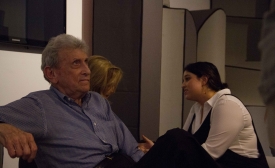cold war
Thirty-three years ago this week, Soviet fighter jets shot down a Korean Airlines passenger jet that had strayed into Soviet airspace while on a scheduled flight from New York to Seoul. Two hundred and sixty-nine passengers and crew were killed, including a U.S. Congressman. At first, Moscow denied that this had happened, then it claimed that the commercial flight had been gathering intelligence. No apologies were ever made.
The planting of false stories is nothing new; the Soviet Union devoted considerable resources to that during the ideological battles of the Cold War. Now, though, disinformation is regarded as an important aspect of Russian military doctrine, and it is being directed at political debates in target countries with far greater sophistication and volume than in the past.
Surprisingly, some of these leaders, particularly in Russia and China, have been wielding a sophisticated and deceptive soft power beyond their borders that is proving more enduring and effective than in the past. Their tactics are asymmetrical and subversive, using deception and disinformation, not easily confronted.
Today, Edward R. Murrow’s name is synonymous with integrity in journalism. He reported from the frontlines during World War II and took on Joe McCarthy’s communist witchhunt in the 1950s. But what’s less well known to Americans today is his role as the country’s leading propagandist in the early 1960s. A new book by Gregory M. Tomlin called "Murrow’s Cold War: Public Diplomacy for the Kennedy Administration" seeks to remedy that.
In April 1966, legendary jazz musician Duke Ellington travelled to Dakar, Senegal, with his orchestra to play at the first World Festival of Negro Arts. Organised against the backdrop of African decolonisation and the push for civil rights in the US, the festival was hailed as the inaugural cultural gathering of the black world.
Forty-five years ago, Cold War tensions between the United States and communist China were lessened thanks to an unlikely diplomatic tool: ping-pong. On April 10, 1971, the U.S. table tennis team arrived in China for a 10-day visit, becoming the first group of Americans in over 20 years to get a peek behind the “Bamboo Curtain.”

Remembering Jack Masey, a giant in American public diplomacy.







